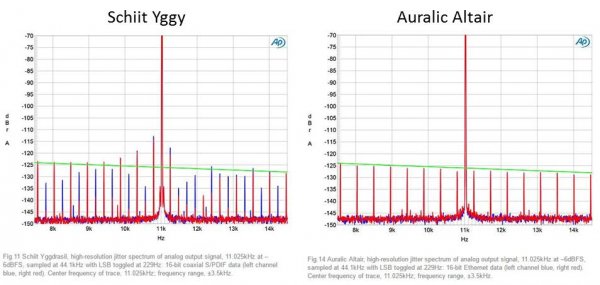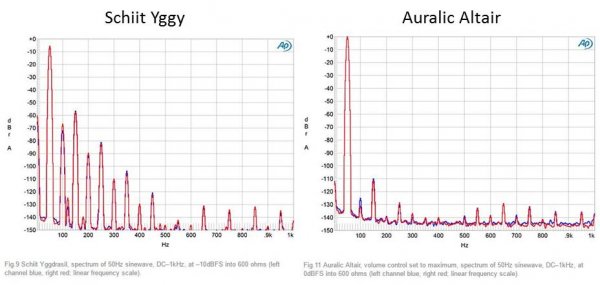Stereophile jitter measurements vs. cheaper Altair DAC:

"Tested for its rejection of word-clock jitter with a 16-bit J-Test signal, the Schiit Yggdrasil had some problems (fig.11). Although most of the odd-order harmonics of the LSB-level, low-frequency squarewave in the right channel (red trace) are close to the correct level (green line), many components are suppressed, particularly in the left channel (blue), and the two sidebands closest to the spectral spike that represents the 11.025kHz tone are boosted. This behavior was identical with coaxial and optical S/PDIF data and with USB data."
https://www.stereophile.com/content/schiit-audio-yggdrasil-da-processor-measurements
Mani.

"Tested for its rejection of word-clock jitter with a 16-bit J-Test signal, the Schiit Yggdrasil had some problems (fig.11). Although most of the odd-order harmonics of the LSB-level, low-frequency squarewave in the right channel (red trace) are close to the correct level (green line), many components are suppressed, particularly in the left channel (blue), and the two sidebands closest to the spectral spike that represents the 11.025kHz tone are boosted. This behavior was identical with coaxial and optical S/PDIF data and with USB data."
https://www.stereophile.com/content/schiit-audio-yggdrasil-da-processor-measurements
Mani.







